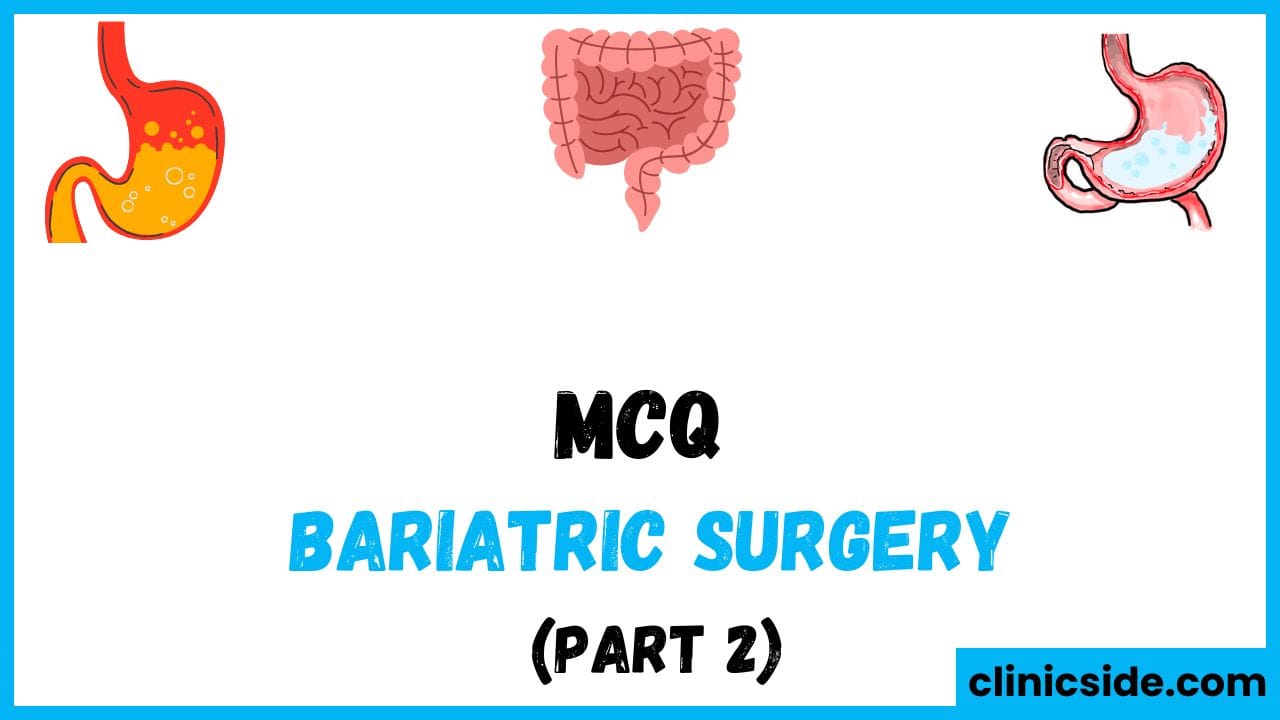Quiz
Available options: 1 to 20
Comprehensive Overview of Bariatric Surgery Complications and Management
Bariatric surgery is a well-established treatment for obesity, providing significant benefits for individuals struggling with severe obesity and related health conditions. However, like any major surgical procedure, it carries the risk of complications both in the short and long term. The following summary outlines the common issues faced after bariatric surgery, their causes, and the essential management strategies required for a successful recovery.
Long-Term Complications After Surgery
Bariatric surgery is not without its long-term complications. Hypoglycemia, or low blood sugar, is one of the most concerning risks, especially after rapid weight loss. Other complications include chronic diarrhea, protein deficiencies, and malabsorption, all of which arise due to changes in how the digestive system processes nutrients. In some cases, osteoporosis may develop over time, particularly in women, due to calcium and vitamin D deficiencies. Monitoring these conditions and adhering to a structured care plan is crucial to prevent long-term health issues.
Dumping Syndrome and Digestive Discomfort
Dumping syndrome is a common problem that typically occurs after procedures like gastric bypass. This syndrome happens when food, especially high-carbohydrate food, moves too quickly from the stomach to the small intestine, leading to symptoms like nausea, dizziness, and diarrhea. Post-surgical gallstones are another concern, often caused by rapid weight loss. Both conditions can be managed through dietary changes, including reducing sugar intake and focusing on smaller, more frequent meals.
Nutritional Deficiencies and Their Impact
After bariatric surgery, nutritional deficiencies are a significant concern, particularly in surgeries that cause malabsorption, such as gastric bypass. Common deficiencies include vitamin A, which can cause night blindness, and iron, which leads to fatigue and hair loss. Additionally, hypokalemia (low potassium levels) is often observed. Patients are typically advised to take vitamin and mineral supplements to counter these deficiencies and maintain overall health.
Anastomotic Leaks and Stricture Formation
One of the most dangerous complications is anastomotic leakage, which can occur after gastric bypass surgery. This condition results in leakage from the surgical connection between the stomach and the small intestine, leading to severe abdominal pain and infection. Prompt diagnosis with imaging tests, like a CT scan with contrast, is essential for successful treatment. Strictures, or narrowings of the surgical site, are another issue, commonly seen in gastric bypass patients, and they may require surgical intervention to correct.
Reflux, Nausea, and Vomiting Issues
Postoperative reflux symptoms are most frequently observed after sleeve gastrectomy procedures. Patients often experience heartburn or acid reflux. Additionally, nausea and vomiting are common after surgery, typically triggered by overeating, eating too quickly, or consuming foods that are hard to digest. These symptoms can be controlled through changes in eating habits, such as consuming smaller meals and avoiding carbonated drinks.
Internal Hernias and Abdominal Complications
Internal hernias, which can occur after Roux-en-Y gastric bypass, are a significant concern. This complication happens when parts of the intestines move into abnormal positions, causing abdominal pain and requiring surgery. Other common abdominal issues include malabsorption, which leads to chronic diarrhea, often related to bile acid malabsorption. Patients need to follow prescribed diets and medications to reduce these complications.
Hypocalcemia and Bone Health
Hypocalcemia (low calcium levels) is another issue that can arise after bariatric surgery, mainly due to vitamin D malabsorption. Over time, this can lead to osteoporosis, particularly in women, making bones more prone to fractures. To prevent this, patients must take calcium and vitamin D supplements regularly and undergo bone density monitoring as part of their long-term health management.
Preventing Deep Vein Thrombosis (DVT)
After bariatric surgery, the risk of developing deep vein thrombosis (DVT) increases due to decreased mobility. To prevent DVT, patients are encouraged to mobilize early and may be prescribed anticoagulants. Keeping the body active post-surgery is crucial to reduce the risk of clot formation and ensure better overall recovery.
Managing Hypoglycemia Post-Surgery
Hypoglycemia is a common post-bariatric surgery issue, particularly after meals. This condition can be managed by eating small, frequent meals that are rich in protein, which helps stabilize blood sugar levels. Patients are advised to avoid high-sugar foods that may cause rapid insulin spikes, leading to hypoglycemia.
The Importance of Lifestyle Changes
The success of bariatric surgery is significantly influenced by the patient’s willingness to adopt lifestyle changes. While surgery facilitates weight loss, long-term success depends on a balanced diet, regular exercise, and adherence to prescribed supplements. A commitment to these lifestyle changes is essential for maintaining health, preventing complications, and achieving sustainable results.
Conclusion
Bariatric surgery offers substantial benefits for individuals struggling with severe obesity, but it also requires careful attention to possible complications. By addressing issues such as nutritional deficiencies, dumping syndrome, reflux, and hernias, patients can improve their outcomes and quality of life. Success hinges on the patient’s commitment to ongoing care, including dietary changes, exercise, and regular medical checkups. With proper management, bariatric surgery can provide long-term health benefits.





